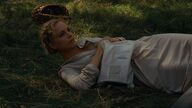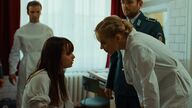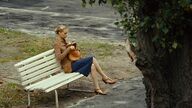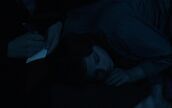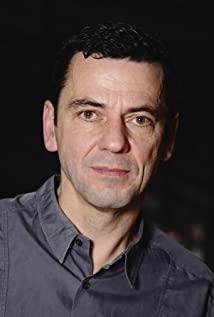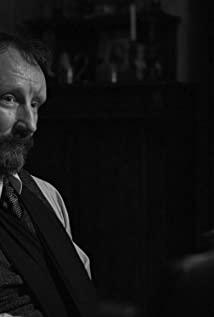Christian Petzold, who was born in the 1960s, has always cut into all aspects of German history with realist care, and used a chronological and historical film framework to reflect the appearance of Germany in the past, and to reflect the present. . His films mostly narrate the unfortunate experiences of individuals to show the tragedies of the group at that time, which are like a tragic, compassionate, and put the various struggles, compromises, redemptions and disillusions of the collective memories of the German people on the screen for reflection and discussion by the audience.
The film "Barbara", released in 2012, is Petzold's 10th feature film and won the Best Director Award at the 62nd Berlin Film Festival. It is also his fifth collaboration with Nina Hors, the latter In this film contributed wonderful acting skills. Combining the "Phoenix" and "Transit" filmed by Petzold in the later stage, we inevitably think of these three films as a "German trilogy", and "Barbara" is the beginning of the trilogy, and it is also The timeline is closest to one of our works. In 2014, "The Phoenix" took the love story in the reconstruction phase of Germany after the end of World War II as the main line, telling the result of the national tragedy scaled to the individual; the 2018 "Transit" more pointed the finger at Nazi Germany, with modern The background reproduces the brutal oppression of Nazi Germany in World War II, and finally ends with the protagonist’s love in exile. Petzold is an admirer of the German film movement "Berlin School". From his films, we can find many shadows of directors during the "New German Film Movement" period. Compared with his predecessor, Petzold is softer. From the plain narrative, we can also recall the stormy waves, so that after watching, we feel at a loss. No matter what status, status, spirited or lonely the protagonists in his movies are. The element of "love" runs through his films with an unchanging theme to alleviate the common pain of those individuals during the period of suffering.
The background of this film is set in the Democratic Republic of Germany in the 1980s. The film begins with Babara (Nina Hoss) taking a bus to the hospital in a small town on the outskirts of Berlin. Accompanied by brisk music, we saw it for the first time Babara, on the bus, looked away from the camera, got out of the bus, and sat on the bench in front of the hospital to smoke. Immediately, the camera moved to a chat between the attending doctor Andre (Ronald Zehrfeld) and the officer. Andre watched Babara with interest and asked the officer about her past. From their conversations, we learned that she had tried many times to escape to West Germany. For this reason, he was transferred from a top medical school in Berlin to this small town hospital, where she was the focus of attention in the town. Through a set of spliced shots not long after the beginning of the film, the film explains the film's tone, narrative background, and main character information to the audience.
Babara's visits with colleagues in the hospital, meals in the cafeteria, and other scenes gave us hints that she is a solitary and self-sufficient person. The outbreak of contradictions requires an opportunity until after get off work. At the bus station, Andre offered to send her off. When returning home, the two parties were in the car, and they had a dispute over opinions for the first time. Andre kindly reminded her to try to lower her posture and try to integrate into the new environment. These words stimulated her and caused the two to break up unhappy. . In a sense, some clever lens arrangements from the beginning of the film give hints about what will happen between the two, but the contradiction will eventually be eased by time, the grudge will be put down, and the suspicion will follow the narrative. It becomes trust.
The whole film was mostly shot from Babara's first perspective, and Andre and Babara did not have many same-frame scenes in the sense of advancing the narrative of the main line of the movie. The first act took place in Andre’s laboratory. This was the first time she took the initiative to get to know Andre. She discovered that he had a brilliant past, a high-achieving student, had great interest in Rembrandt, and dreamed of going to The Hague, Netherlands. Rembrandt's real work, she understood that it was not for others to fall here. Rembrandt's painting "Dr. Nicolas Durr's Planing Lessons" was the beginning of the two sides running in. The two sides held different views on the interpretation of the bloody hands in the painting, but she seemed to have begun to accept different views. The second act takes place in Andre’s residence. After seeing the officer’s wife, he took Babara to his home. During the cooking process, he told her a story in Turgenev’s Hunter Story Collection. Ending with the loss of the sustenance of love, Andre's face trembled slightly, and then decided to give her the book. Babara realized the change in his tone, stepped forward and kissed Andre, and then left his residence.
The door-to-door visits of the military officers and accompanying censors are the key points of the film's narrative that are not noticeable. It subtly expresses the author's creative standpoint and is also an important tool to sublimate the realistic theme of the film. Babara was visited by censors again and again. They can be seen on the trails at night and in the boring afternoons on weekdays. They occasionally search for East German personnel with potential risk of escape. They seem to be pervasive, like a ghost. The ghost of huddled above Babara's head. In the film, this series of scenes are not presented with lengthy dialogue and complicated shots. Instead, the uniform uniforms, mechanized movements and serious facial expressions of government personnel create a repressive and tense atmosphere for this narrative. On the side, it vaguely described East Germany in the context of the times.
Stella, the pregnant girl who tried to escape the labor camp for the fourth time. During a visit, Babara came across Stella who was brutally carried to the hospital by the labor camp staff. She was injured in her neck and needed surgery. In contrast to her usual indifference, she comforted Stella gently, and let the latter put her guard down. , To cooperate with her work, which surprised Andre, in the lens, we can also feel that he recognizes and appreciates Babara in a certain sense. A certain bond has gradually formed between Stella and Babara. The former gave her unconditional trust, and the latter gave her what she had been missing with maternal care. Stella told her that she wanted to leave and hoped that she would not abandon her. Stella’s departure is inevitable. The government of East Germany represents a highly programmed state apparatus and does not allow individual subjective will. She is not allowed to stay in the hospital for too long. After a short three-headed period, she was loaded into a car and left. After arriving at the hospital, Babara was sad, and the mother-daughter image connection was cut off.
Although Babara continued her daily work, she did not give up the idea of fleeing to West Germany. One time after get off work, she came to a restaurant. She took an envelope full of money from a strange woman and hid the envelope on the way back. A hidden corner. The boyfriend who appeared halfway also indicated the inevitable ending of the story. Babara’s rejection of Andre’s kindness from the beginning seemed to show that she avoided the obstacles of her own planning caused by meaningless interpersonal relationships. She carried out his plans in an orderly manner, even The inspectors also failed to find a trace of flaws.
At the hotel, Babara learned that the flight time was set for this Saturday. It was the day she was on duty. Andre wanted her to conduct the anesthesia work for the operation that day. She couldn’t refuse Andre’s kindness, so she agreed, but she knew that in her heart. It was the day of fleeing, she understood that it was an unfulfilled promise. At night, Stella, who took the opportunity to escape from the labor camp, came to her door and asked her to take herself and leave. Babara gave her painkillers and took her to the beach. Under a set of parallel shots, Andre waited anxiously, with frustration on his face, Babara smoked a West German cigarette in the dim room, and waited quietly, imagining, speculating, the next unknown journey.
The two came to the beach in the lacquer night, everything was left in the night, only their silhouettes, the wind rolled up the waves on the sea and roared furiously, and the trees swayed. Babara was sitting next to a boulder on the beach by the sea, looking at the sea in the distance for a long time. From a distance, a person in a diving suit appeared with a small motorboat. She wakes Stella and the two go to the beach, but learn from the man's gesture that only one of them can leave. Babara didn't hesitate, handed the money to her, decided to stay by herself, and looked at the back of the little girl leaving, standing blankly by the sea.
At the end, the camera cuts back to the hospital. Andre is sitting next to the boy who had undergone surgery last night. She is very sad when she knows that Babara is leaving. She walks in from outside the picture and sits opposite him. Andre smiles comfortably, as if there is nothing. It happened, and everything went back to the afternoon at his house.
Petzold once said in an interview at the New York Film Festival that this was the first time he didn't know how to end a movie. A movie would often end with an end, either happy or incomplete, but this time, it has been Jumping out of a certain conformity, the director left room for the audience to display their imagination with an open ending, and blended delicate emotions into the casual narration, leaving a deep aftertaste for the fans. The question has been asked, but it has not been answered. Isn't this also a portrayal of some complex moments in our daily lives. The world cannot answer most of our questions, leaving countless indigestible questions and sufferings. For the ending, fans who have watched the film more or less imagined a segment that suits them, but we realized that this is not a fairy tale. The warm sun before the cold winter is not helpful. She may fantasize to catch something. Unrealistic fate, but what awaits her will be a cage of confusion.
View more about Barbara reviews



